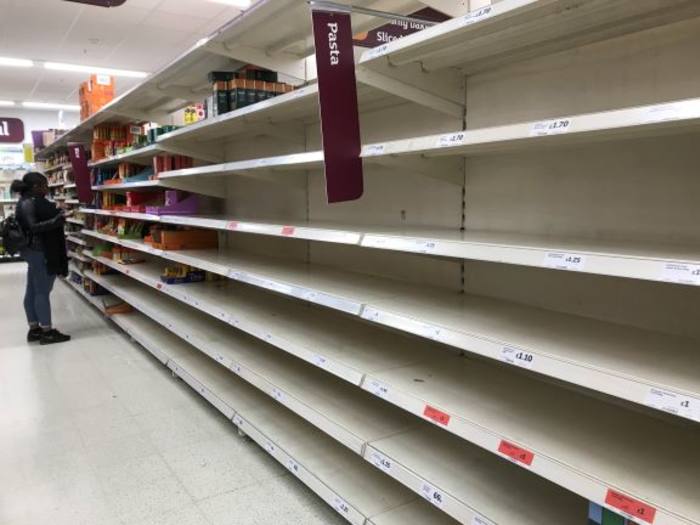
“We think that as long as there is food on the supermarket shelves, all is well with the world. It is not,” writes Tim Lang towards the end of his analysis of the UK’s food policy.
Well, the shelves are no longer full, and it is clear all is not as it should be – with the world at large and, perhaps, with the way the UK feeds its people.
In a turn of events that would have seemed serendipitous had it not come in the form of a global health crisis, Covid-19 has undeniably put a magnifying glass to many of the issues raised by Mr Lang’s new book.
Food poverty, the value we place on those working in the food industries, and the way our food is sourced are issues at the forefront of the nation’s minds.
Feeding Britain is a repetitious yet wide-ranging book – repeatedly emphasising the significance of its argument, while also offering up a smorgasbord of policy proposals.
On issues as varied as nutrition, food security and land use, Mr Lang argues the status quo is untenable, and recent improvements limited and piecemeal.
Mr Lang does not believe the market alone will solve these problems, but nor does he think it has no role to play.
Environmental, social and governance investing advocates will know how supermarkets have taken steps to minimise waste and prioritise sustainable packaging.
Mr Lang suggests that ultra-processed food manufacturing be viewed by investors as “stranded assets” comparable to the fossil fuel industry’s own.
Yet most of his proposals involve an expansion of the state – a series of commissions and guidelines, the decentralisation of UK power, even the use of the Navy to safeguard food supplies.
Mr Lang proposes the introduction of a sustainable diet programme for schools and the public, and using the cost of these diets to inform both welfare payments and the living wage.
Sometimes it takes a crisis to spark real change.
The ongoing increase in state capacity might seem to lend itself to a government-directed national food plan.
Shuttered restaurants and over-extended supermarkets have seen local wholesalers turn into retailers.
A shortage of overseas workers has left policymakers calling on the under-employed to help pick fruit and vegetable in UK fields.
And with health at the top of the agenda, nutritional initiatives have a better chance of succeeding.
So this is clearly a book whose moment has come. But will it prove more than a moment?
In the foothills of a crisis it can be easy to think things will never be the same again. But many of these changes could easily melt away once regular life returns – however far down the line that may be.
As it happens, the government announced last year it would publish a national food strategy this summer. Feeding Britain argues persuasively that should not be swept under the carpet.






